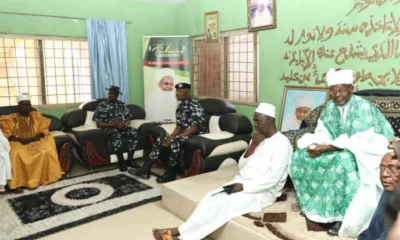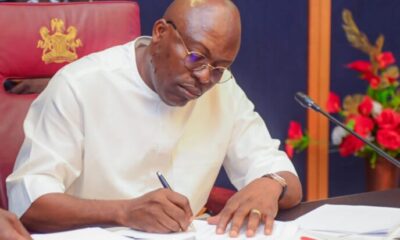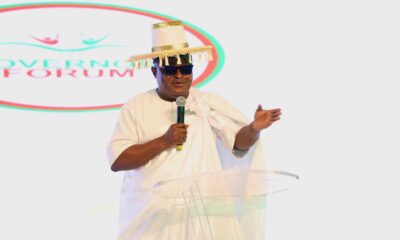
Chairman of the All Progressives Congress (APC), Kwara State, Ishola Balogun-Fulani has faulted the claim by the Nigeria Police that he was rescued from the kidnapers’ den.
Balogun, who was kidnapped by gunmen on Friday, alongside the party’s Secretary, Chief Sunday Bode Adekanye, said ransom was paid before they were released.
Balogun-Fulani told newsmen at the palace of the Emir of Ilorin, Alhaji Ibrahim Sulu Gambari, after a visit of appreciation to the monarch, that the gunmen demanded N40 million and N30 million from him and his secretary, respectively.
He also said they trekked for about 10 hours from 7:30am to 4:00pm in the forest without food or water.
Balogun-Fulani said “we had nothing as food or water while we were in our abductors den. They said they were Fulanis and that they had no other business than armed robbery and kidnapping.
“They spoke Fulani and Pidgin English fluently. They said we must find money for them and demanded N40 million and N30 million from me and the secretary and that if we failed to do that, they were going to waste us.
“We had to call our people; we don’t know what they did but I think they must have paid a certain amount before we were allowed to go (on Saturday) by 6:30pm.
“They tried to enquire whether I am a Fulani man too to which I said yes but they said this is not a family matter but strictly business.
“We were not tortured and nothing was done to us but we trekked from one hideout to another,” said.
“We warned our people not to bring any security men, either police or the army because they warned us and threatened to kill us if we do; they said they were not afraid of police or army and that they have their own weapon too.
“The Police IG tried, he sent a helicopter to come looking for us but it was difficult to locate us because it was inside a very thick forest. Same with the Commissioners of Police in Kogi and Kwara state who also sent in people, yet we were unable to be located. It was when we came out that we saw about 100 policemen waiting for us. The place is around Osara and Okene”, he recalled.
Also speaking, the secretary of the party, Chief Olabode Adekanye, who also narrated how the incident happened, added that another man from Ondo State was kidnapped with them by the Fulani gunmen.
Adekanye said “We first thought they were SARS because they wore no uniform. But immediate we got closer, we saw some of them, about four in number, crawling on the road.
“Then, we immediately made U-turn but were ambushed by four men from the rear; they fired and we stopped.
“They were asking for money and then told us to be running inside the bush with gun pointed to my head.
“After a while, they relaxed and communicated in their language before they ordered us to proceed again.
“Later, they cooked rice with ordinary oil and offered it to us inside one dirty black pot, if we cared. Then we asked for water thinking we could get pure water but they just went somewhere and fetched water from a mud pond with, earth color. That was what they drank and ate and they smoked and constantly took cocaine. It was later in the evening that they now asked us to identify ourselves.”
DailyPost






























